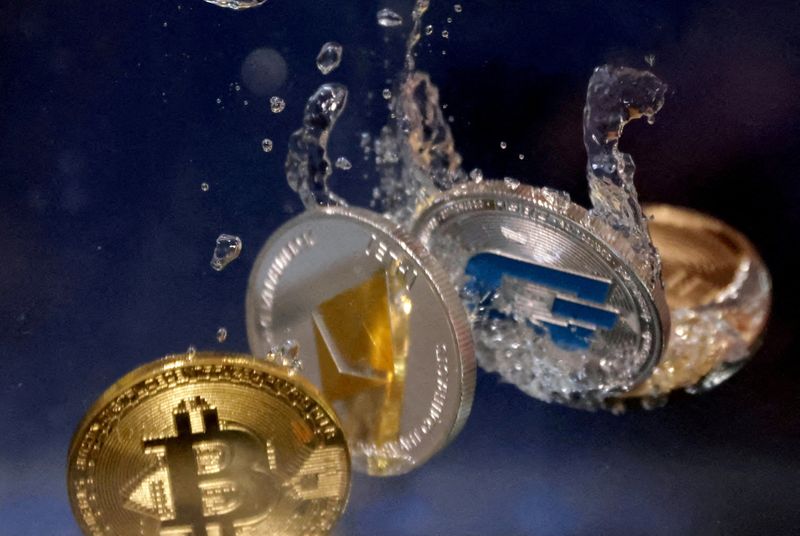By Alun John
LONDON (Reuters) – The dollar weakened to three month-lows against the yen and the pound on Thursday, after comments by Fed Chair Jerome Powell that U.S. rate hikes could be scaled back “as soon as December”, but the euro failed to climb past a major resistance level.
The aggressive pace of U.S. Federal Reserve rate increases this year has sent the dollar soaring, thanks to higher U.S. benchmark yields and fears the central bank would push the U.S. economy into recession in its attempts to combat inflation.
But Powell said on Wednesday that “slowing down at this point is a good way to balance the risks”.
He added, however, that controlling inflation “will require holding policy at a restrictive level for some time”.
Markets are pricing in a 80% probability that the Fed increases rates by 50 basis points at the next meeting, versus a 20% chance of another 75 basis point hike according to CME’s Fedwatch tool.
The greenback tumbled as much as 1.64% to 135.85 yen, its lowest level since August 23, but then recovered to 136.26.
The dollar-yen pair is extremely sensitive to changes in long-term U.S. Treasury yields, which fell after Powell’s comments and hit a two month low of 3.587% in London trading Thursday.
The pound also gained sharply, rising 0.88% to $1.2164, its highest since 12 August, hovering around its 200 day moving average.
Traders are also looking out for Thursday’s U.S. personal consumption expenditure price index to see if that offers any further insights into the inflation situation and hence the Fed’s hiking plans, and also Friday’s U.S. jobs data.
But both could be overshadowed by Powell’s remarks.
Simon Harvey, head of FX analysis at Monex Europe said he thought markets would largely look through PCE data and even when it came to Friday’s jobs data “if they weaken substantially then the market moves, if they stay the same, we’re onto thinking about CPI”.
The euro also made some gains, up 0.38% to $1.04485, but was holding off from making another effort to cross the $1.05 level.
“Euro-dollar has had two failed runs at $1.05. We’re looking to see if there is something that is going to drive things through those barriers,” Harvey said, referring both to the euro at that level and sterling-dollar’s 200 day moving average of $1.22155
The dollar weakened against most other G10 currencies, falling 0.2% against the Swiss franc while the Australian dollar reached $0.684, the highest since Sept. 13 and the New Zealand dollar touched $0.636, the highest since Aug. 17.
The Aussie and kiwi have also been buoyed by signs the Chinese government will relent on its zero-COVID policy.
Giant cities Guangzhou and Chongqing announced easings of COVID curbs on Wednesday, while officials in Zhengzhou, the site of a Foxconn factory that is the world’s biggest maker of Apple iPhones and has been the scene of worker unrest over COVID, also announced the “orderly” resumption of businesses.
China’s yuan saw some volatility in offshore trading after media reports that the capital Beijing would allow some people to home-quarantine. The dollar was last 0.3% stronger at 7.068 yuan after having weakened as much as 0.3% to a two-week low of 7.0256.
(Reporting by Kevin Buckland; Editing by Stephen Coates, Ana Nicolaci da Costa, William Mallard, Alex Richardson and Alexander Smith)



















